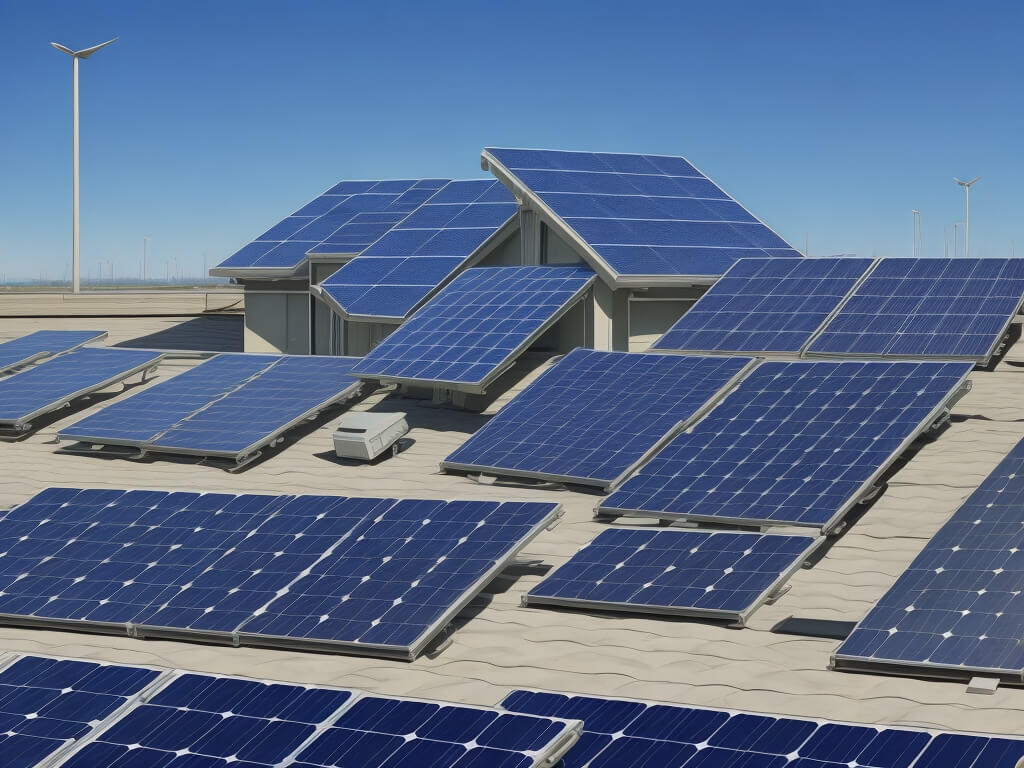
Green energy investments, often referred to as sustainable or renewable energy investments, revolve around channeling your financial resources into projects and businesses that harness energy from renewable sources. These sources encompass a range of eco-friendly options, including solar power, wind energy, hydroelectricity, geothermal heat, and biomass energy. The key differentiator between green energy investments and traditional fossil fuel investments is the environmental impact.
When we consider traditional fossil fuels, their combustion releases harmful greenhouse gases into the atmosphere, contributing significantly to global warming and environmental degradation. In contrast, green energy sources generate electricity while keeping the environmental footprint minimal.
These investments have become increasingly critical due to their potential to bring about several substantial advantages. Firstly, they play a significant role in mitigating climate change by reducing greenhouse gas emissions. This reduction is vital in our collective effort to combat global warming and its far-reaching consequences.
Moreover, green energy investments promote energy independence, as they lessen our reliance on imported fossil fuels. This, in turn, enhances energy security and reduces vulnerability to price fluctuations in the global energy market.
From an economic perspective, investing in the green energy sector fosters growth, job creation, and local development. The green energy industry is expanding at a remarkable pace, providing numerous employment opportunities and fostering economic development on both local and national scales.
Green energy investments also guarantee long-term viability. Fossil fuels are finite resources and will eventually deplete, making it essential to transition to sustainable energy sources. By investing in green energy, we secure our energy needs for the present and future generations.
Why Do Green Energy Investments Matter?
Traditional fossil fuel-based energy production is a major source of air pollution, greenhouse gas emissions, and climate change consequences. By shifting our investments towards green energy sources, we take a substantial step towards reducing our carbon footprint.
Investing in green energy sources offers a dual advantage by decreasing our dependence on often imported fossil fuels. This transition strengthens energy independence and security, significantly reducing our vulnerability to the unpredictable fluctuations in the global energy market. By supporting sustainable and locally-sourced energy solutions, we not only contribute to a cleaner environment but also bolster our resilience to the uncertainties of international energy supply and demand. This move towards energy self-sufficiency can have far-reaching economic and geopolitical benefits, making green energy investments a strategic and environmentally responsible choice.
The green energy sector is growing rapidly and has the potential to create numerous jobs. As more investors support these technologies, it leads to economic growth in local communities, as well as on a larger scale.
Fossil fuels, such as coal, oil, and natural gas, are finite resources, meaning that they have a limited supply that will eventually be depleted. As we continue to extract and consume these non-renewable resources, the day when they run out draws closer.
Investing in green energy is a forward-thinking choice for securing our energy needs not just for the present but also for future generations. It ensures that we can meet our energy demands without worrying about resource depletion and its associated economic and environmental consequences. By transitioning to sustainable energy sources, we embrace a more resilient and responsible approach to meeting our energy requirements, ultimately benefiting our planet and posterity.
Benefits of Green Energy Investments
Investing in green energy allows you to diversify your investment portfolio effectively. By including renewable energy stocks or projects, you spread your risk across different sectors, reducing the impact of potential downturns in any one industry. Diversification can help safeguard your investments and improve the stability of your financial portfolio.
Green energy investments can be financially rewarding. As the demand for clean energy continues to rise, the value of these investments tends to appreciate. This upward trend is driven by both the increasing demand for sustainable energy sources and advancements in green technologies. Additionally, many governments offer incentives such as tax credits, subsidies, and grants for renewable energy projects, making green investments even more appealing from a financial perspective.
Beyond financial considerations, green energy investments align with ethical values for many investors. By directing your money toward sustainable and environmentally responsible practices, you play a vital role in reducing environmental harm and mitigating climate change. This type of investment is a meaningful way to contribute to a better, cleaner future for the planet and future generations.
Green energy investments can also translate into practical and immediate benefits for individuals. For instance, installing solar panels or wind turbines on your property can lead to substantial energy cost savings over time. In some cases, if your renewable energy system produces excess energy, you may have the opportunity to sell it back to the grid, effectively turning your investment into a profitable venture. These energy cost savings not only improve your financial situation but also reduce your reliance on traditional energy sources, further contributing to the transition to green energy.
How to Start Green Energy Investments
Starting green energy investments is an admirable and forward-thinking financial endeavor, but like any investment, it requires careful planning and due diligence. Here’s a step-by-step guide on how to get started:
Begin by immersing yourself in the world of green energy investments. This includes studying local and national green energy projects and getting to know companies in the renewable energy sector. Understand the technologies they use, their track record in the industry, and their financial stability. Thorough research will provide you with insights into the most promising opportunities and potential risks.
Green energy investments, like any other investments, come with their own set of risks. Understand how much risk you are comfortable with and how these investments fit into your broader financial strategy. Consulting with a financial advisor who specializes in sustainable investments can be invaluable in this process.
Diversification is a fundamental strategy in investment. By including a mix of green energy assets in your portfolio, you can spread your risk and increase your chances of financial success. Consider investing in green energy stocks, bonds, or directly in renewable energy projects. This mix will help you navigate the inherent ups and downs in the green energy market.
Many governments recognize the importance of green energy and offer incentives to encourage investments in this sector. These incentives often come in the form of tax credits, subsidies, or grants. Research your local government’s offerings and take full advantage of these programs to maximize your returns and mitigate some of the financial risks.
If you’re still unsure about where to invest or how to start your green energy investment journey, it’s wise to seek guidance from experts in the field. A financial advisor who specializes in sustainable and green energy investments can provide valuable insights tailored to your specific financial situation and goals. They can help you make informed decisions, choose the right investments, and develop a comprehensive strategy for your green energy portfolio.

